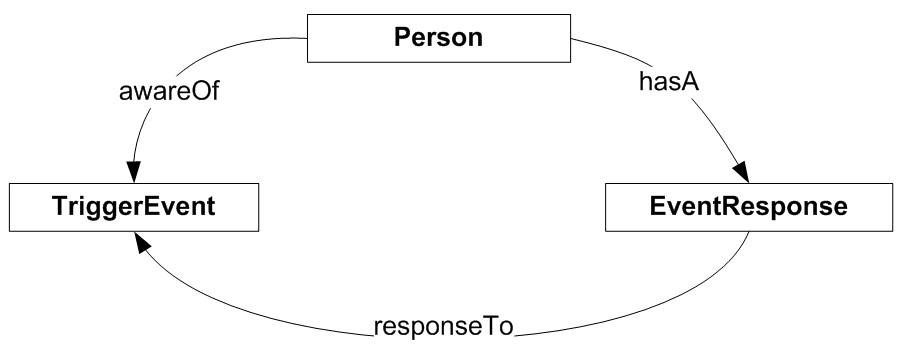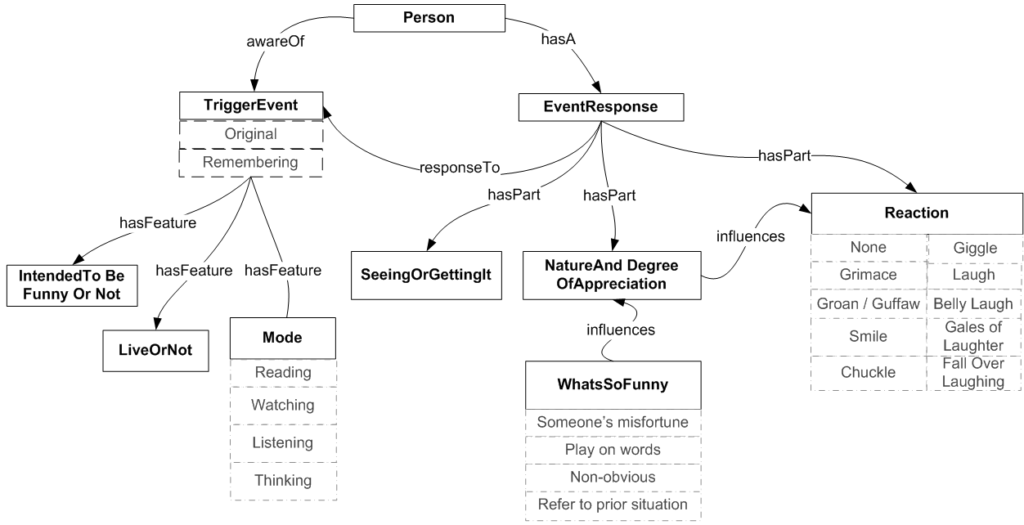As the Season to be Jolly gets into full swing, I reflect one of my favorite ways to be jolly: laughter. What makes us laugh (or not) in a given situation? Some people just laugh, like my mother, who regularly burst into gales of laughter, for no apparent reason. The more puzzled our looks, the harder she laughed. I dedicate this blog to my mom, who passed away just before Christmas a year ago.
What happened?
There are many things that can trigger us to laugh. It is often someone making a quip or writing/telling a story or joke with the intention to make others laugh. Of course, such attempts often fall flat. Conversely, sometimes things just happen that are found to be funny, and no one was playing the role of comedian. The trigger event might be something that is unfolding live – perhaps just a stray thought that comes into your head. Or you might be watching videos, reading, or listening to a podcast. Or worse, the person next to you on a boring commute, earbuds in place, is doing so and laughing their head off.
Then what did you do?
So an event happens that comes into our awareness, and we outwardly respond to it in some way. f we are not impressed, we may: grimace, groan, guffaw, blank stare, or say “yark yark”. On the positive side, reactions include: smile, chuckle, giggle, laugh, gales of laughter and falling over laughing. In extreme cases, each time you recall the event, in subsequent minutes, hours and days, you will again laugh uncontrollably. It could be weeks, months or even years before your response to merely remembering the original event fades back to a mere smile, or warm feeling inside. See the diagram below. Note the similarity to how gratitude was characterized in the Thanksgiving Blog several weeks ago.

Why did you do that?
What is interesting is not so much the trigger event itself, nor even what the reactions are: it’s what happens in between. What do we find funny and why? First, we see or understand the thing that is [or is supposed to be] funny. When the event is an overt attempt at humor, we call this ‘getting it’. The next step is very personal; how much and why do we appreciate what we just saw or understood? Many people that get a bad pun won’t enjoy or appreciate it in any way. Other people may readily acknowledge that that same pun is pretty bad, but they giggle nevertheless. Below are just a few thoughts that come to mind: patterns for things that contribute to being funny.
- We watch someone make mistakes, e.g. the Darwin awards are often uproariously funny. We will often laugh if somoen falls into a puddle, or at ourselves for say putting the left shoe on the right foot (er, the wrong foot).
- Plays on words, including the lowly pun as well as other more respectable forms of double entendre. For example: “The past, the present and the future walk into a bar. It was tense.”
- Something is startling, non-obvious, or the exact opposite of what we are expecting. This is not enough on its own to be funny, but often contributes. For example, did you hear about the guy who walked onto a train and saw Albert Einstein? He asked Albert: “do you know whether Boston comes to this train”?
- Reference to an event that happened recently that is similar to what is going on at a given moment. Surprisingly, this can often be funny, all by itself, in the right situation, but it is hard to convey – you really do have to be there. Look out for it.

For the 2014 Season to be Jolly, you now have a simple conceptual model describing the main elements of laughter & amusement how they relate to each other. In our business, we call this an ‘ontology’. Sometimes the hardest thing is to come up with is a good name for an ontology. The ones that first come to mind are descriptive, but boring – like Ontology of Laughter (OoL) , or The Laughter Ontology (TLO). Or if you want cool acronym, you might try Crafted Ontology Of Laughter (yark yark). Alternatively, the name you think of calls attention to itself by trying so hard to be clever it falls flat on its face, like “OnJollygy” (pronounced: on jolly jee).
Exercise for the reader:
- Notice what just happened: a bad attempt at humor
- Notice you own reaction to this proposed name
- See how your own reaction matches with the elements in OnJollygy
For example, for me, this name just came as a random thought (trigger event). Because I am total sucker for plays on words, I immediately enjoyed it and giggled with glee (reaction) – but the first person I told gave me a blank stare and the next one just grimaced.
Feel free to think I’m a bit weird. I attribute this to genetics. My mom never needed reason to laugh and my dad is a die-hard punster who wears a t-shirt that says: “A Mature Pun is Fully Groan”. His favorite was a quintuple pun involving lions, sea gulls and commerce – have you heard that one?
Whether you experience Groans, Giggles or Gales of Laughter, may your Holidays be Jollily filled with Joy.

